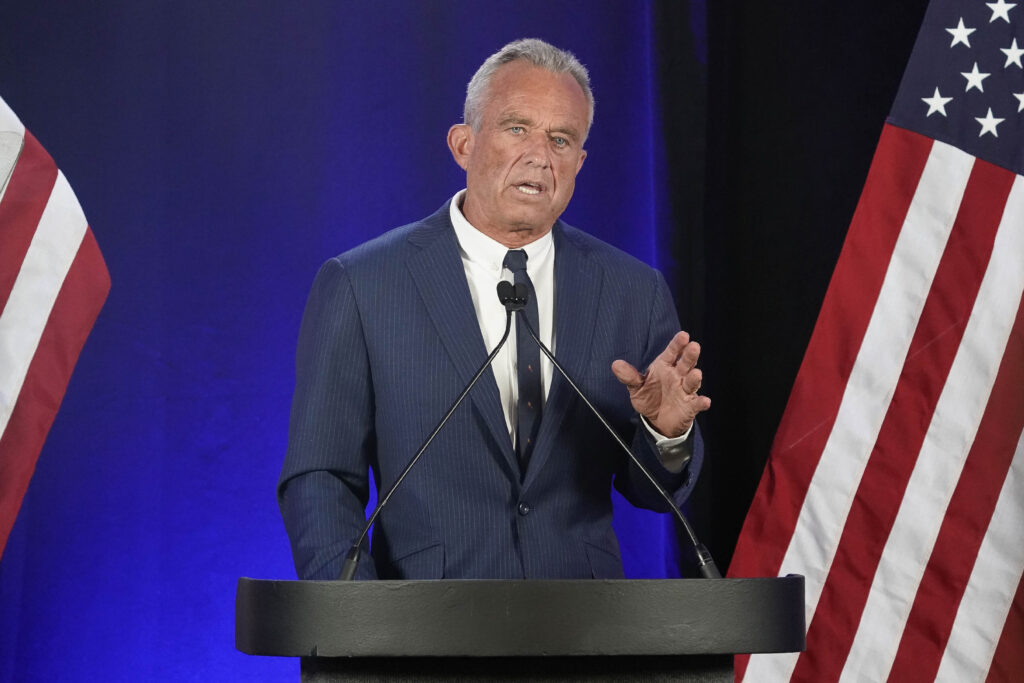RFK Jr. Ballot Dispute Delays Absentee Voting in North Carolina

North Carolina was supposed to mail out absentee ballots to voters on Friday, but the legal dispute about whether Robert F. Kennedy Jr.’s name should be on the ballot has delayed this process.
Kennedy was running as a third-party candidate — representing the We the People Party — in the 2024 presidential race against Vice President Kamala Harris (D) and former President Donald Trump (R).
In a last-minute move, he suspended his campaign on Aug. 23, endorsing Trump and saying he would withdraw his name from the ballot in 10 key battleground states where he would be a spoiler candidate and hurt Trump’s chance for victory.
Since then, he has asked to be removed from the ballot, but many states have said they have already prepared their ballots for the November election and can’t change them now because that would interfere with voting starting on time.
Each state has different deadlines for when their absentee ballots need to be sent out to voters, and North Carolina’s is 60 days before the election — one of the earliest ones, which is why Kennedy’s ballot dispute has the largest impact on them right now.
On Aug. 29, the North Carolina State of Board Elections (NCSBE) rejected a request from Kennedy’s party to remove him from the ballot because they said it was too late to prepare and print new ballots across the state.
The vendor that prints ballots for most of the state’s counties estimated that if new ballots had to be created, most counties would not have ballots until mid-September and there would be significant expenses, the NCSBE said in a statement last week.
The next day, Kennedy asked a North Carolina court to order the NCSBE not to print or mail ballots to voters with his name on them.
On Thursday, the court denied Kennedy’s request because he “will suffer no practical, personal, or pecuniary harm should his name remain on the ballot,” but if the state had to reprint ballots, “the harm to…county boards of elections and voters would be substantial.”
However, the judge ruled that the state couldn’t mail out absentee ballots until noon the next day to give Kennedy time to appeal, even though they planned to mail them out in the morning.
Kennedy appealed the decision to the North Carolina Court of Appeals that day. On Friday morning, the court reversed the lower court’s denial, ruling the state was prohibited from distributing ballots listing Kennedy as a candidate.
Shortly after this court order was issued, NCSBE’s general counsel Paul Cox sent an email to the state’s 100 county election directors, telling them to hold their outgoing absentee ballots.
“Obviously, this will be a major undertaking for everyone. Our attorneys are reviewing the order and determining how to move forward. No decision has been made on whether this ruling will be appealed,” Cox wrote in the Friday morning email.
Regardless of whether the board decides to appeal, absentee voting has already been delayed.
North Carolina is not the only state Kennedy has notched a court victory in. In Michigan, the state’s Court of Appeals ruled Friday that Kennedy must be removed from the ballot, reversing a decision made earlier this week by a lower court judge.
Michigan’s absentee ballots don’t need to be sent out until 45 days before the election, but this will likely still impact their timeline. Secretary of State Jocelyn Benson (D)’s office will appeal this decision, according to her spokesperson.
Read the North Carolina Court of Appeals order here.
Read the NCSBE general counsel’s email to election officials here.